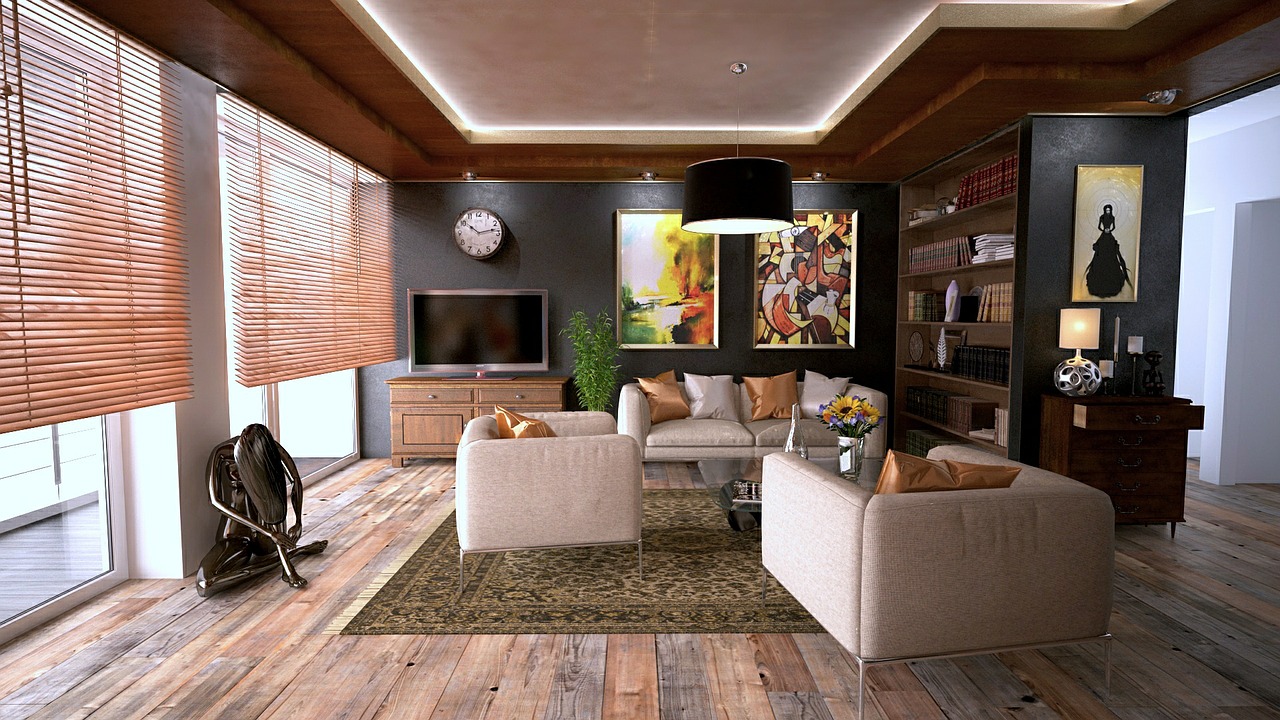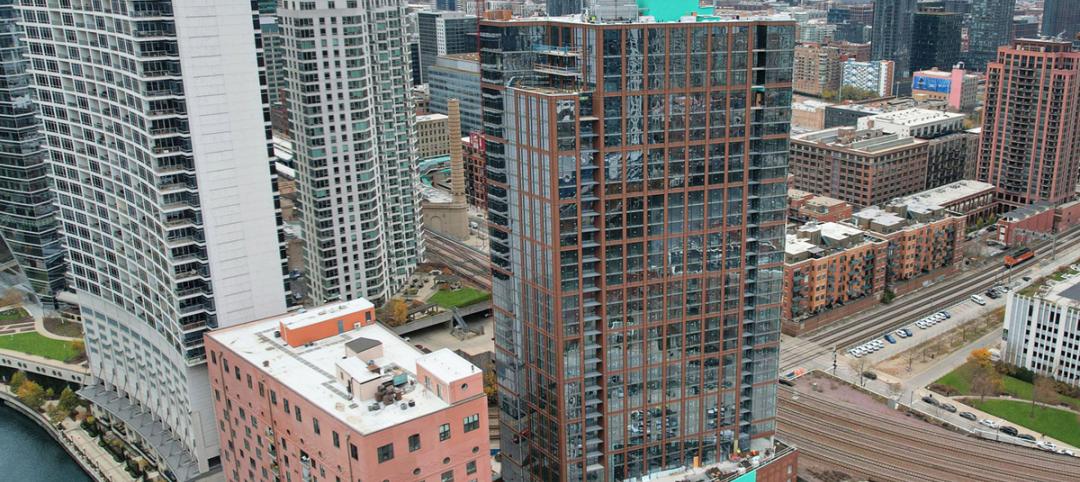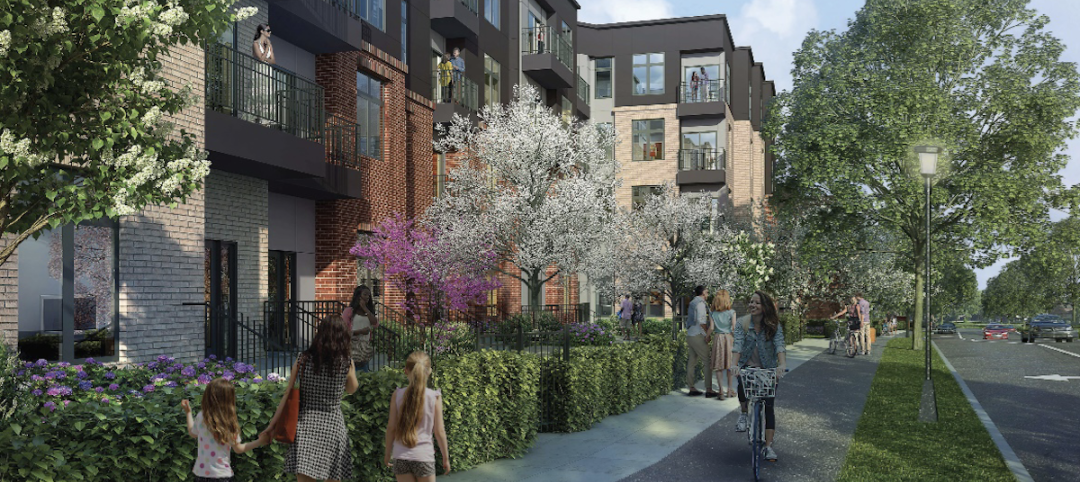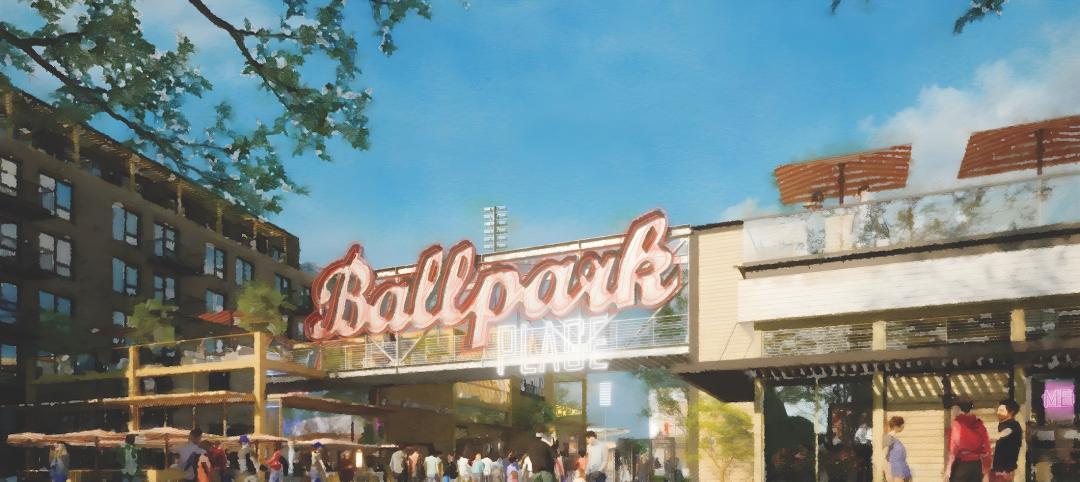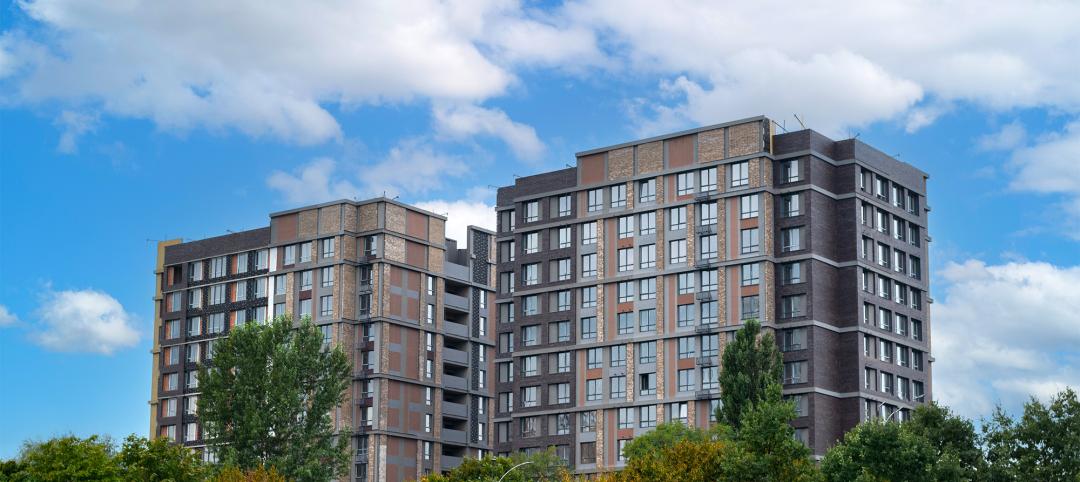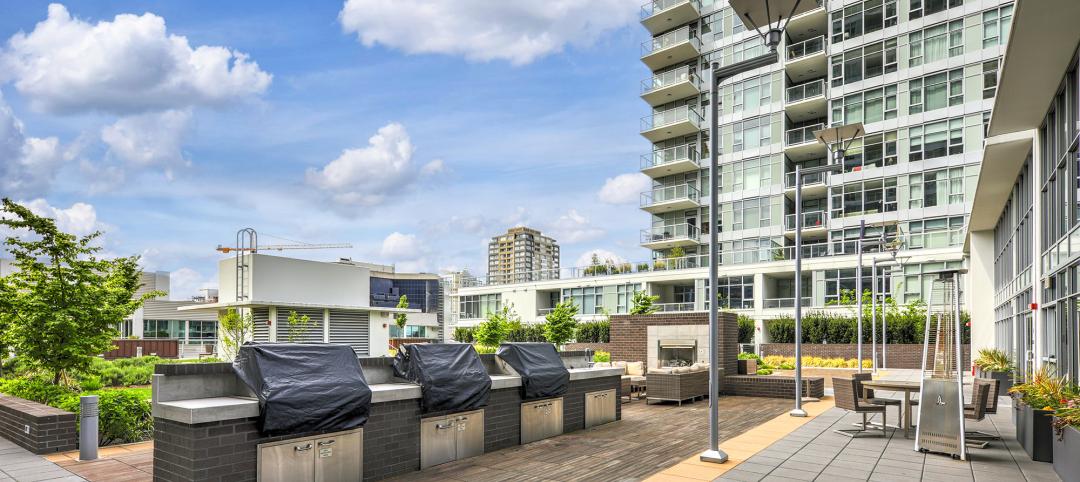The average new apartment in the U.S. is about 8% smaller than the average was a decade ago. And that shrinkage wasn’t confined to urban markets, either.
Those are two of the main findings in a recent survey of the apartment market, conducted by RENTCafé, a nationwide apartment search website, using data provided by Yardi Matrix, a sister company that researches and reports on multifamily properties of 50 units or more across 121 markets in the U.S.
That research shows the size of new apartments averaging 934 sf, versus 1,015 sf in 2006. New studio apartments took the steepest decline, to an average 504 sf this year from 614 sf a decade ago, representing a nearly 18% difference. New two-bedroom apartments, on the other hand, at 1,126 sf, are actually 1% larger than the average for that apartment type in 2006.
RENTCafé estimates that the average apartment size in the U.S., regardless of when it was built, is 889 sf. There are three regions of the country that exceed the average—the Southeast (974 sf), South (937), and Mid-Atlantic (891).
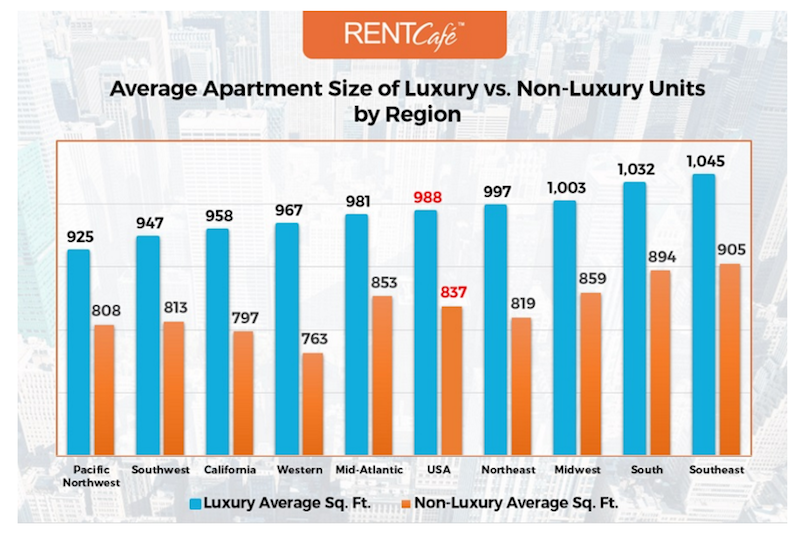
The southern regions of the U.S. still give renters the most for their buck, in terms of average apartment size. Image: RENTCafe
The largest gap between luxury and non-luxury apartment sizes is in the western states, 967 sf vs. 763 sf. Conversely, the gap between luxury and non-luxury apartments in the Southeast is relatively narrow: 1,045 sf vs. 905 sf.
Atlanta leads all cities with the largest average apartments, followed by Plano, Texas; Jersey City, N.J.; Henderson, Nev.; and Chesapeake, Va. Arizona has three of the five cities—Tucson, Glendale, Mesa—with the smallest average apartment sizes. (El Paso, Texas, and Buffalo, N.Y., fill out that ranking).
By far, Atlanta leads all cities with the largest average two-bedroom apartments, at 1,125 sf; Jersey City is its closest rival in that category, at 1,097 sf.
Interestingly, neither New York, San Francisco, nor Boston—three cities where the micro apartment crae hit first—ranks among the top 20 cities for smallest apartment size. (In fact, Boston is No. 10 in among the cities with the largest average apartments.)
“But that doesn’t erase the fact that Manhattan remains the nation’s tightest market, with average rents reaching a whopping $4,043 per month, more than three times the national average,” Yardi Matrix data show.
RENTCafé’s survey breaks down 95 metros and their average apartment sizes by studio, one-bedroom, and two-bedroom. In Los Angeles, the country’s largest city, a studio apartment averages 524 sf, a one-bedroom 729 sf, and a two-bedroom 1,043 sf. Reno, Nev., has the smaller average studios (352 sf), Stockton, Calif., the smaller average one-bedroom (632 sf), and Buffalo the smallest average two-bedroom (843 sf).
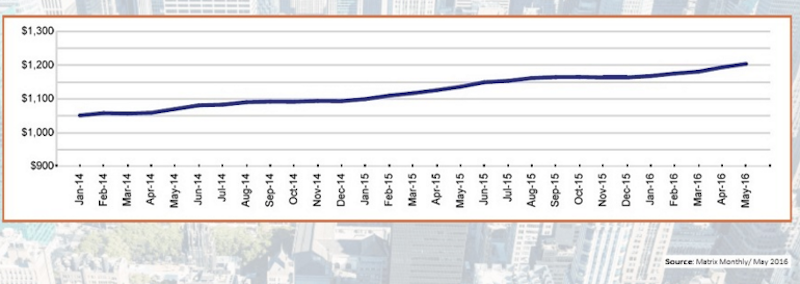
Despite the shrinkage in apartments, rents aren't retreating. Image: RENTCafe
The survey cautions, however, that while apartments are shrinking, their rents may not be. “Apartment rents are breaking record after record,” with the national monthly rent hitting an average of $1,204 in May, the report states. In San Francisco, “you’ll still be paying $2,500 for a 500-sf studio.”
There is increasing demand for high-density housing with mixed-use components, which are being directed specifically at Millennials and downsizing Baby Boomers.
Another thing that hasn’t changed: Renters desire apartment buildings with lots of amenities. RENT Café points to Eastown, the largest apartment community delivered to L.A.’s rental market last year. Located in Hollywood, the community includes a pool and spa with lounges, a fireplace and patio area, a gym and fitness center, and electric vehicle charging stations. Rents start at $1,925 for a 571-sf apartment.
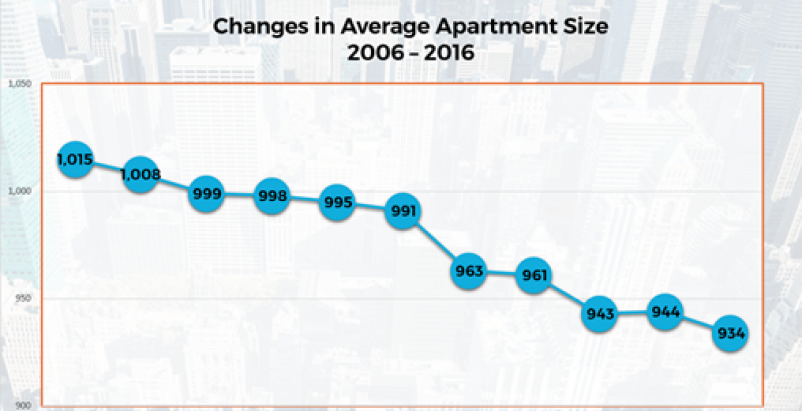 The average size of a new apartment in the U.S. has been on a steady decline for the past 10 years, according to a new survey that tracks apartment sizes in most major metros across the country. Image, which shows average square footage by year: RENTCafe
The average size of a new apartment in the U.S. has been on a steady decline for the past 10 years, according to a new survey that tracks apartment sizes in most major metros across the country. Image, which shows average square footage by year: RENTCafe
Related Stories
Multifamily Housing | Apr 12, 2024
Habitat starts leasing Cassidy on Canal, a new luxury rental high-rise in Chicago
New 33-story Class A rental tower, designed by SCB, will offer 343 rental units.
MFPRO+ News | Apr 10, 2024
5 key design trends shaping tomorrow’s rental apartments
The multifamily landscape is ever-evolving as changing demographics, health concerns, and work patterns shape what tenants are looking for in their next home.
Mixed-Use | Apr 9, 2024
A surging master-planned community in Utah gets its own entertainment district
Since its construction began two decades ago, Daybreak, the 4,100-acre master-planned community in South Jordan, Utah, has been a catalyst and model for regional growth. The latest addition is a 200-acre mixed-use entertainment district that will serve as a walkable and bikeable neighborhood within the community, anchored by a minor-league baseball park and a cinema/entertainment complex.
Multifamily Housing | Apr 9, 2024
March reports record gains in multifamily rent growth in 20 months
Asking rents for multifamily units increased $8 during the month to $1,721; year-over-year growth grew 30 basis points to 0.9 percent—a normal seasonal growth pattern according to Yardi Matrix.
Industry Research | Apr 4, 2024
Expenses per multifamily unit reach $8,950 nationally
Overall expenses per multifamily unit rose to $8,950, a 7.1% increase year-over-year (YOY) as of January 2024, according to an examination of more than 20,000 properties analyzed by Yardi Matrix.
Affordable Housing | Apr 1, 2024
Biden Administration considers ways to influence local housing regulations
The Biden Administration is considering how to spur more affordable housing construction with strategies to influence reform of local housing regulations.
Affordable Housing | Apr 1, 2024
Chicago voters nix ‘mansion tax’ to fund efforts to reduce homelessness
Chicago voters in March rejected a proposed “mansion tax” that would have funded efforts to reduce homelessness in the city.
Standards | Apr 1, 2024
New technical bulletin covers window opening control devices
A new technical bulletin clarifies the definition of a window opening control device (WOCD) to promote greater understanding of the role of WOCDs and provide an understanding of a WOCD’s function.
Adaptive Reuse | Mar 26, 2024
Adaptive Reuse Scorecard released to help developers assess project viability
Lamar Johnson Collaborative announced the debut of the firm’s Adaptive Reuse Scorecard, a proprietary methodology to quickly analyze the viability of converting buildings to other uses.
Green | Mar 25, 2024
Zero-carbon multifamily development designed for transactive energy
Living EmPower House, which is set to be the first zero-carbon, replicable, and equitable multifamily development designed for transactive energy, recently was awarded a $9 million Next EPIC Grant Construction Loan from the State of California.


